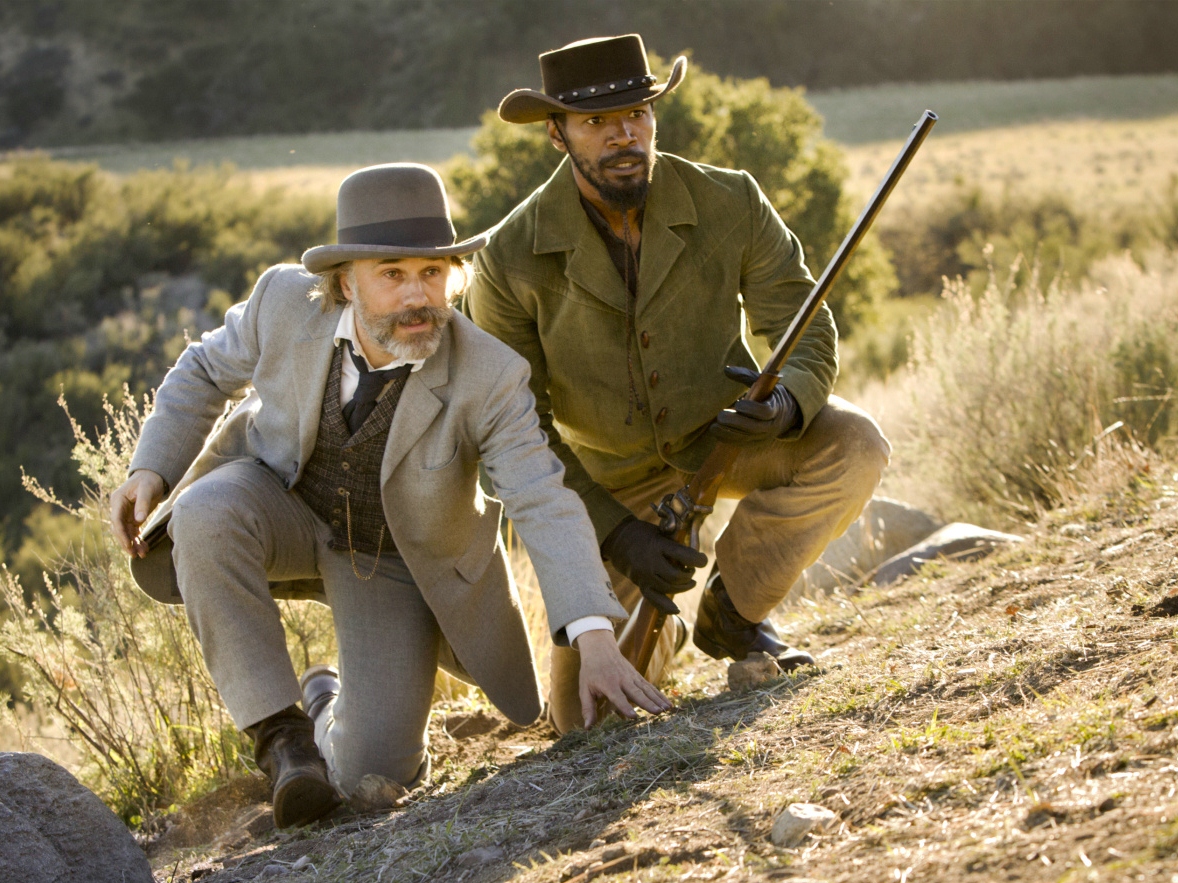
The latest Quentin Tarantino film has violence, lots of it, and features more than 100 uses of the “N-word.”
Stop … the presses?
“Django Unchained,” set for a Christmas Day release date, has Tarantino once more in the culture war cross hairs. The Drudge Report prominently featured the film’s liberal use of the n-word this week. Other media outlets are questioning that along with the copious violence on screen.
Tarantino’s early films, like “Pulp Fiction” and “Reservoir Dogs,” redefined screen violence. His 1997 mash note to the Blaxploitation era, “Jackie Brown,” used the n-word so frequently director Spike Lee lodged a public complaint about it.
This isn’t a matter of a stand-up comic berating an audience member with racial slurs. Nor does the subject matter – slavery – prevent Tarantino from showing the violent nature of the material.
The debate does cast the new film “Hitchcock” in an intriguing light. The Alfred Hitchcock biopic recalls the legendary director’s battle to bring “Psycho” to the big screen. Back in the early 1960s, filmmakers had to adhere to the dictates of the Motion Picture Production Code. According to the film, that meant the iconic director couldn’t show a knife plunging into actress Janet Leigh’s lovely skin, among other considerations.
Think the creators of “Saw” would survive in that era of Hollywood?
Tarantino is a supremely gifted filmmaker, albeit one who appears incapable of editing his own greatness. When he embraces violence, he does so without flinching. The same holds true for his use of ugly language when he deems it appropriate.
Audiences will start deciding come Dec. 25 if his approach for “Django Unchained” is offensive or darn appropriate for the story at hand.

COMMENTS
Please let us know if you're having issues with commenting.